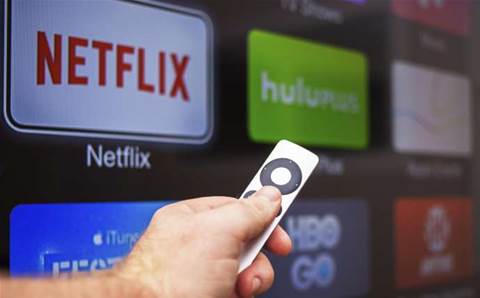Foxtel is considering the impact to its business in response to CRN's report last week of a new Australian ISP helping customers to avoid geographic restrictions on overseas video streaming sites.
Yournet, a nascent ISP due to commence operations next month, told CRN last week that its broadband subscribers would have the ability to change their internet region to the USA, UK, Canada, New Zealand, France and Germany.
This would allow access to overseas entertainment sites like Hulu, Netflix USA and BBC iPlayer, without an additional VPN or DNS manipulation tool.
A spokesperson for pay TV provider Foxtel told CRN that the company had only "just become aware" of Yournet and would consider "the implications for our business" and would "take appropriate action in response".
Whether that response comes in the form of legal action remains to be seen. Four New Zealand ISPs that provided geo-dodging faced exactly that scenario in April from a powerful collective of Kiwi television channels and online streaming services.
Yournet licences the same technology, called Global Mode, used by the New Zealand ISPs.
The Kiwi broadcasters alleged that Global Mode violated local copyright. The case was settled this month with the ISPs withdrawing the geo-dodging functionality.
Yournet founder Raj Bhuva told CRN that the Australia is a different situation to that encountered by the New Zealand ISPs.
"The laws are different and the New Zealand apparoach was different, We're speaking to local content providers... We have a conciliatory and complementary approach with them," said Bhuva.
"Also, [federal communications minister] Malcolm Turnbull has said previously that [geo-blocking circumvention] does not infringe on copyright."
Turnbull's website confirms that internet geography manipulaton is not illegal in Australia: "While content providers often have in place international commercial arrangements to protect copyright in different countries or regions, which can result in ‘geo-blocking’, circumventing this is not illegal under the Copyright Act."
Consumer advocacy group Choice promotes the circumvention of geo-blocking.
"The frustrating reality of geo-blocking is common for Australian consumers, and we're often charged hefty mark-ups," wrote Choice journalist Elise Dalley on its website. "Online media streaming services like Netflix and Hulu also divide the globe into segments, only granting access to those with a certain IP address."
The Australian Screen Association, a lobby group representing the big Hollywood film studios, declined to comment to CRN.
Netflix Australia would not comment on Yournet specifically but a spokesperson said: "Netflix have said on a number of occasions that the use of technology to avoid geo-filtering violates terms and conditions, and they believe broadcasters should be paid for the content they license."
CRN asked internet service providers Telstra, Optus, M2 Group and iiNet whether they would consider providing a similar geo-dodging service to Yournet, but all declined to comment. M2 Group, the parent company of Dodo and iPrimus, acquired CallPlus in April – one of the Kiwi ISPs that faced court action from broadcasters over Global Mode.





_(27).jpg&h=142&w=230&c=1&s=1)
.jpg&h=142&w=230&c=1&s=1)
_(21).jpg&h=142&w=230&c=1&s=1)





.jpg&w=100&c=1&s=0)











